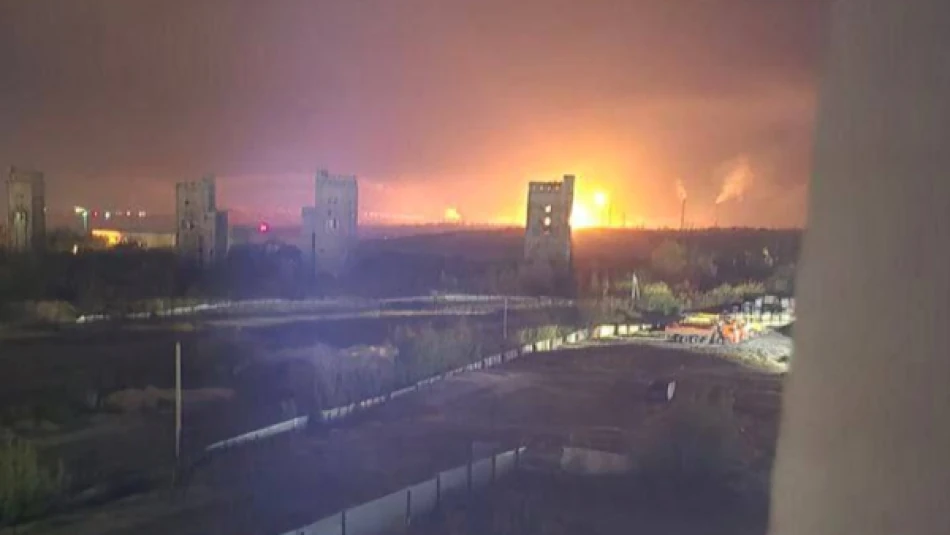
Ukrainian Forces Strike Russian Oil Facilities in Bold Cross-Border Operation
Ukraine Escalates Energy War with Fresh Strikes on Russian Oil Infrastructure
Ukrainian forces launched another wave of drone attacks on Russian oil refineries Saturday, targeting critical energy infrastructure in the Saratov and Samara regions along the Volga River. The strikes represent a continuation of Ukraine's strategic campaign to disrupt Russia's energy sector, which has become a key pillar of Moscow's war financing and domestic fuel supply.
Latest Strikes Target Volga River Industrial Hub
Ukraine's General Staff confirmed on Telegram that explosions and a major fire erupted at a facility in Saratov, a strategic industrial city on the Volga River that has faced repeated Ukrainian attacks in recent weeks. Regional Governor Roman Busargin reported that Ukrainian drone strikes injured one woman and damaged windows in two residential buildings along with several vehicles, though he did not identify the specific refinery targeted.
The attacks extended beyond Saratov, with Ukrainian forces also striking an oil refinery and additional infrastructure in the neighboring Samara region to the northeast. Samara Governor Vyacheslav Fedorishchev acknowledged that fuel and energy sector targets came under Ukrainian drone assault, though he stopped short of confirming the extent of any damage.
Strategic Shift: Energy Infrastructure as Military Target
Ukraine's intensified focus on Russian energy facilities marks a significant evolution in its military strategy. By targeting refineries and fuel infrastructure deep inside Russian territory, Kyiv aims to achieve multiple objectives: disrupting Moscow's ability to fuel its military operations, reducing export revenues that finance the war effort, and demonstrating Ukraine's growing long-range strike capabilities.
Economic Warfare Beyond the Battlefield
The Volga River region hosts some of Russia's most important energy infrastructure, making it a high-value target for Ukrainian forces. Saratov and Samara are home to major refineries that process crude oil for both domestic consumption and export markets. Sustained attacks on these facilities could force Russia to redirect military resources for defensive purposes while potentially creating fuel shortages in border regions.
Escalating Drone Campaign Reshapes Conflict Dynamics
The repeated strikes on the same targets suggest Ukraine has developed reliable intelligence networks and drone capabilities that can penetrate hundreds of kilometers into Russian territory. This represents a dramatic shift from the early months of the conflict, when Ukraine primarily focused on defensive operations and shorter-range counterattacks.
The targeting of civilian energy infrastructure mirrors Russia's own strategy of attacking Ukrainian power plants and heating facilities, though Ukraine appears to be focusing more precisely on military-relevant fuel production rather than broader civilian utilities. This tactical approach may help Ukraine maintain international support while maximizing military impact.
Regional Security Implications
The ability to strike deep into Russian territory fundamentally alters the strategic calculus for Moscow, which previously considered its interior regions safe from direct attack. The psychological impact on Russian civilians, combined with the economic costs of defending scattered infrastructure targets, adds new pressure on the Kremlin's war effort without requiring Ukraine to commit ground forces or risk pilots in manned aircraft operations.
Most Viewed News

 Layla Al Mansoori
Layla Al Mansoori






